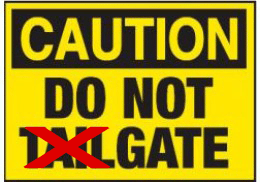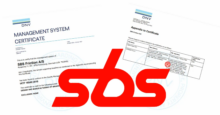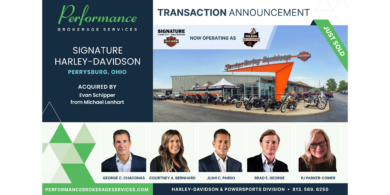Stop and rethink your review process
 A few months back I wrote about the importance of managing your dealership’s online reputation and reviews. After doing more and more research on dealers, it’s apparent this area is incredibly deficient across the board. Many dealers attempting to manage their online reputation are utilizing tools and strategies that are not allowing for maximum success. Some dealers are downright acting very questionably when it comes to soliciting and managing the reviews they are receiving.
A few months back I wrote about the importance of managing your dealership’s online reputation and reviews. After doing more and more research on dealers, it’s apparent this area is incredibly deficient across the board. Many dealers attempting to manage their online reputation are utilizing tools and strategies that are not allowing for maximum success. Some dealers are downright acting very questionably when it comes to soliciting and managing the reviews they are receiving.
One of the biggest concerns to be aware of is “gating” your reviews. That’s a term virtually none of you will be aware of, but it’s a term you need to understand and heed all the pitfalls it entails. “Gating” is when a business puts up a filter or attempts to suppress a negative review. In theory this sounds practical and prudent to save your business from embarrassing reviews or comments from upset customers. As a rule of customer service, you are doing more damage to your relationship with customers — good and bad — than you truly realize.
 The process of gating typically takes the following path:
The process of gating typically takes the following path:
- You MUST have customers begin the review process on your website or a website managed by a vendor assisting your gating. This immediately issues a challenge to your customer. And rarely is this process takes place via mobile, which I will address more later.
- The customer chooses a review, in most cases a 1-5 ratings system.
- If a customer leaves a 4 or 5 reviews, he or she is passed through to a review site like Google or Facebook.
- If customers leave a review of 1-3, they are then redirected to an alternate review site that is hidden and only seen by your dealership management.
- Then if the management follows up with the negative review, it’s only then they can resolve the issue.
- Then you must instruct the customer to go back to the review process to leave a positive review.
Now you may think that by gating that negative review you are correcting the issue the customer experienced and turning that into a positive one. We know this is not always possible. Wouldn’t the best course of action be to publicly respond to a negative review, so other customers know your intent to go above and beyond to resolve issues both with this customer and internally with your staff?
When you begin gating reviews, another thing to be aware of is that you are limiting the number of reviews you can potentially receive. You are sacrificing up to 30 percent of your reviews by putting up the roadblock of gating. To what end is this solution gaining you? It will only weed out less than 1 percent of what could be negative reviews.
By gating a negative review, this does not prevent customers for publicly expressing their bad experiences. Customers will most likely go directly to Facebook or Google anyway to review the dealership, and you will still have to address it there anyway.
So consider these factors when you choose to implement gating:
- Customers will know you’re gating. They know there’s no business out there that’s 100-percent perfect. Sixty-eight percent of customers trust reviews more when they see good and bad scores. Customers using online reviews to make buying decisions are savvy enough to know when your score may be too good to be true.
- What are you hiding? Only 8 percent of consumers expect a business to have a 5-star rating. By knowingly gating those negative reviews, you are telling your customers you don’t want to be transparent in your business dealings, so it plants the seed of deceitfulness to a potential new customer.
- When you start filtering negative reviews, you are only asking to anger the customer further. When customers realize you gated them and are not willing to resolve their issue to their liking, they are going to pursue publicly bashing you out of spite. And in most cases these reviews can go much further than the initial concern they expressed.
- If you suppress negative reviews, you are telling customers their opinion only has marginal value if it benefits you. A negative review publicly expressed can actually gain you more credibility, when you respond and resolve it publicly. When you look at review sites, do negative reviews deter you? Or do you appreciate it when a business takes ownership and shows they value that customer and attempt to resolve the issue?
- If you asked for the customer’s opinion, but it never sees the light of day, you risk a huge backlash of discontent among not just one customer but likely many.
As previously mentioned in my blog post about reviews, it’s critical to your business to have a strong online presence. Google is actually using both number of reviews and ratings of reviews for your business to rank you in results. And don’t forget Google controls 90 percent of all online searches. So if you’re gating reviews and driving down the number of reviews you could potentially receive, you will pay for this, as your competitors reviews surpass you.
Now here are things you can do to implement a good review process:
- Encourage your customers to review your business, while they are in the store. Offer them a convenient way to do this via mobile. Send them an immediate text alert with a direct path to publicly-known review sites like Google and Facebook. Sending them an email after they leave your store, you leave so much to chance, namely the fact that they will even open and read the email to begin with.
- Always respond to reviews, good and bad. It’s obvious you want to respond to a negative review to hopefully resolve an issue. Thanking a customer for a good review publicly is exactly what customers want to see online.
- Carefully vet your reviews for the content and intent and report those that have no relation to your dealership through the proper channels of the review site’s management tools.
 Finally, gating reviews seem harmless, but as more and more think it’s a practical way to manage business, you will start seeing review sites altering their processes to prevent gating from happening. You already know reviews get blocked if they all come from the same computer at a single location. Or if people are malicious online and leaving reviews that are unfounded, they will get blocked. Review sites can see where online traffic is coming from, and if they see the majority of your reviews are coming from a third party site, and you are driving customers to gate them, you will likely see this get blocked in the future.
Finally, gating reviews seem harmless, but as more and more think it’s a practical way to manage business, you will start seeing review sites altering their processes to prevent gating from happening. You already know reviews get blocked if they all come from the same computer at a single location. Or if people are malicious online and leaving reviews that are unfounded, they will get blocked. Review sites can see where online traffic is coming from, and if they see the majority of your reviews are coming from a third party site, and you are driving customers to gate them, you will likely see this get blocked in the future.
Finding a reputable online review tool with a partner to help you implement the process and support you in this will be a key factor in your success. Don’t be afraid to let your customers share their experience. The overwhelming majority find themselves singing your praises. Stop holding them back from doing so.
Ron Cariker is owner/president of 7 Media Group, a diverse mobile marketing firm based in the U.S. and the leading mobile provider for the powersports industry. Ron and his company have worked with over 100 dealers across the U.S. for the past 6 1/2 years.








